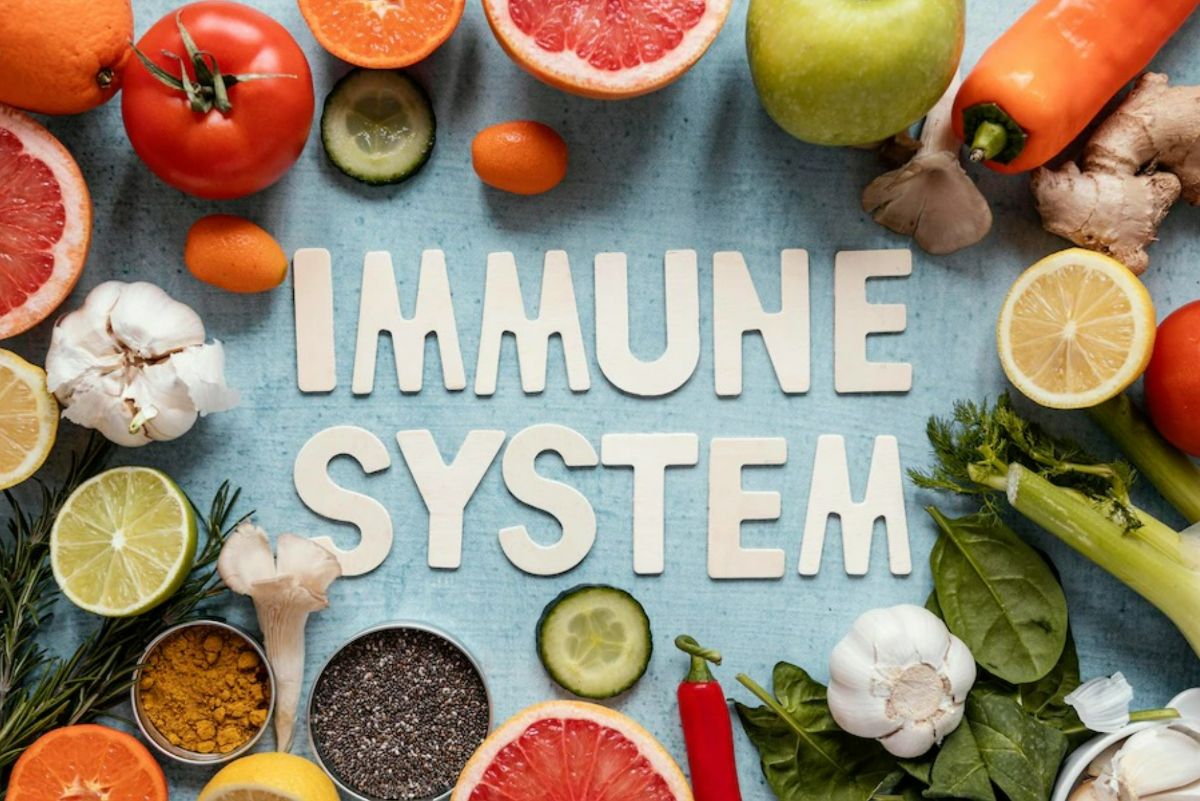How to Boost Your Immune System
We'll explore the science behind the immune system, delve into factors that can weaken it, and provide boost your immune system

The immune system is our body's natural defense mechanism against harmful pathogens and infections. It plays a crucial role in keeping us healthy and resilient in the face of various threats. While the immune system is complex and sophisticated, there are steps we can take to support and strengthen it. In this comprehensive guide, we'll explore the science behind the immune system, delve into factors that can weaken it, and provide practical tips on how to boost your immune system for a healthier and more robust life.
Understanding the Boost Your Immune System
The Role of White Blood Cells
White blood cells, or leukocytes, are the backbone of the immune system. They patrol the body, identifying and neutralizing harmful invaders such as bacteria, viruses, and fungi.
Innate and Adaptive Immunity
The immune system consists of innate and adaptive components. Innate immunity is the first line of defense, providing immediate protection against threats. Adaptive immunity involves specialized immune cells that "remember" previous infections and mount targeted responses.
Factors That Can Weaken the Immune System
Poor Diet and Nutrition
A diet lacking in essential nutrients weakens the immune system. Nutrient deficiencies, especially in vitamins and minerals like vitamin C, vitamin D, and zinc, can impair immune function.
Chronic Stress and Sleep Deprivation
Chronic stress releases hormones that suppress immune function. Additionally, inadequate sleep disrupts the body's immune response, making it more susceptible to infections.
Lifestyle Habits That Support Immune Health
Balanced Diet and Nutrient-Rich Foods
A well-rounded diet provides the necessary nutrients for optimal immune function. Focus on whole foods such as fruits, vegetables, whole grains, lean proteins, and healthy fats.
Regular Physical Activity and Exercise
Exercise improves circulation, increases the production of immune cells, and promotes overall well-being. Aim for at least 150 minutes of moderate-intensity exercise per week.
The Power of Sleep and Rest
Sleep's Impact on Immune Function
During sleep, the immune system produces cytokines?proteins that regulate immune responses. Sleep deprivation impairs cytokine production, weakening the body's ability to fend off infections.
Establishing Healthy Sleep Patterns
Prioritize sleep by creating a sleep-conducive environment, sticking to a regular sleep schedule, and practicing relaxation techniques before bedtime.
Stress Management and Mindfulness
The Connection Between Stress and Immunity
Chronic stress suppresses immune function by increasing cortisol levels. Managing stress through practices like meditation, deep breathing, and yoga can mitigate its impact on immunity.
Mind-Body Practices for Stress Relief
Mindfulness practices, such as meditation and tai chi, have been shown to reduce stress and promote immune health by enhancing the body's ability to respond to infections.
Hydration and Immune Support
Importance of Adequate Hydration
Staying hydrated supports immune function by ensuring the efficient circulation of immune cells. Aim to drink plenty of water throughout the day.
Herbal Teas and Immune-Boosting Beverages
Certain herbal teas, such as echinacea and elderberry, contain compounds that can support the immune system. Incorporate these beverages into your routine for added benefits.
The Role of Probiotics and Gut Health
Gut-Immune System Connection
A healthy gut plays a crucial role in supporting immune function. Probiotics, also known as "good" bacteria, promote gut health and help modulate immune responses.
Incorporating Probiotic-Rich Foods
Include fermented foods like yogurt, kefir, sauerkraut, and kimchi in your diet to introduce beneficial probiotics and improve gut health.
Antioxidant-Rich Foods and Immune Function
How Antioxidants Protect Cells
Antioxidants are compounds that protect cells from oxidative stress and inflammation. They play a role in supporting the immune system's ability to fight infections.
Including Colorful Fruits and Vegetables
Consume a variety of colorful fruits and vegetables, such as berries, citrus fruits, spinach, and bell peppers, to benefit from a wide range of antioxidants.
Vitamins and Minerals for Immune Support
Vitamin C, D, and Zinc's Role in Immunity
Vitamin C boosts immune cell production, vitamin D enhances immune responses, and zinc is essential for immune cell function.
Dietary Sources and Supplements
Include foods rich in these nutrients, such as citrus fruits for vitamin C, fatty fish for vitamin D, and nuts and seeds for zinc. If needed, consult a healthcare professional before considering supplements.
Hygiene Practices for Immune Health
Importance of Regular Handwashing
Handwashing is one of the most effective ways to prevent the spread of infections. Wash your hands frequently with soap and water for at least 20 seconds.
Balancing Hygiene and Microbiome Health
While hygiene is crucial, excessive use of antibacterial products can disrupt the body's natural microbiome. Use antibacterial products judiciously to maintain a healthy balance.
Social Connections and Immunity
The Link Between Loneliness and Immune Function
Social isolation and loneliness can negatively impact immune health. Strong social connections contribute to overall well-being and immunity.
Nurturing Relationships for Well-Being
Prioritize nurturing relationships with friends, family, and community members. Engage in activities that foster social connections and support.
Nurturing Your Body's Natural Defense System
A strong immune system is your body's shield against infections and illnesses. By adopting healthy lifestyle habits, prioritizing nutrition, managing stress, and promoting overall well-being, you can give your immune system the support it needs to function optimally. Remember that boost your immune system is an ongoing commitment to your health, and the efforts you invest today can lead to a healthier and more resilient tomorrow.
What's Your Reaction?
















